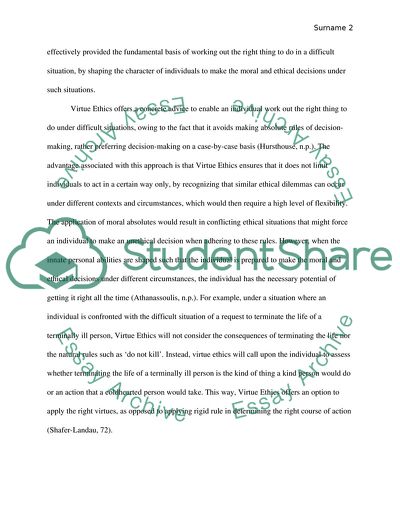Cite this document
(How Virtue Ethics Provides for the Evaluation of an Ethical Issue Case Study Example | Topics and Well Written Essays - 1250 words - 16, n.d.)
How Virtue Ethics Provides for the Evaluation of an Ethical Issue Case Study Example | Topics and Well Written Essays - 1250 words - 16. https://studentshare.org/philosophy/1851625-final-paper
How Virtue Ethics Provides for the Evaluation of an Ethical Issue Case Study Example | Topics and Well Written Essays - 1250 words - 16. https://studentshare.org/philosophy/1851625-final-paper
(How Virtue Ethics Provides for the Evaluation of an Ethical Issue Case Study Example | Topics and Well Written Essays - 1250 Words - 16)
How Virtue Ethics Provides for the Evaluation of an Ethical Issue Case Study Example | Topics and Well Written Essays - 1250 Words - 16. https://studentshare.org/philosophy/1851625-final-paper.
How Virtue Ethics Provides for the Evaluation of an Ethical Issue Case Study Example | Topics and Well Written Essays - 1250 Words - 16. https://studentshare.org/philosophy/1851625-final-paper.
“How Virtue Ethics Provides for the Evaluation of an Ethical Issue Case Study Example | Topics and Well Written Essays - 1250 Words - 16”. https://studentshare.org/philosophy/1851625-final-paper.


